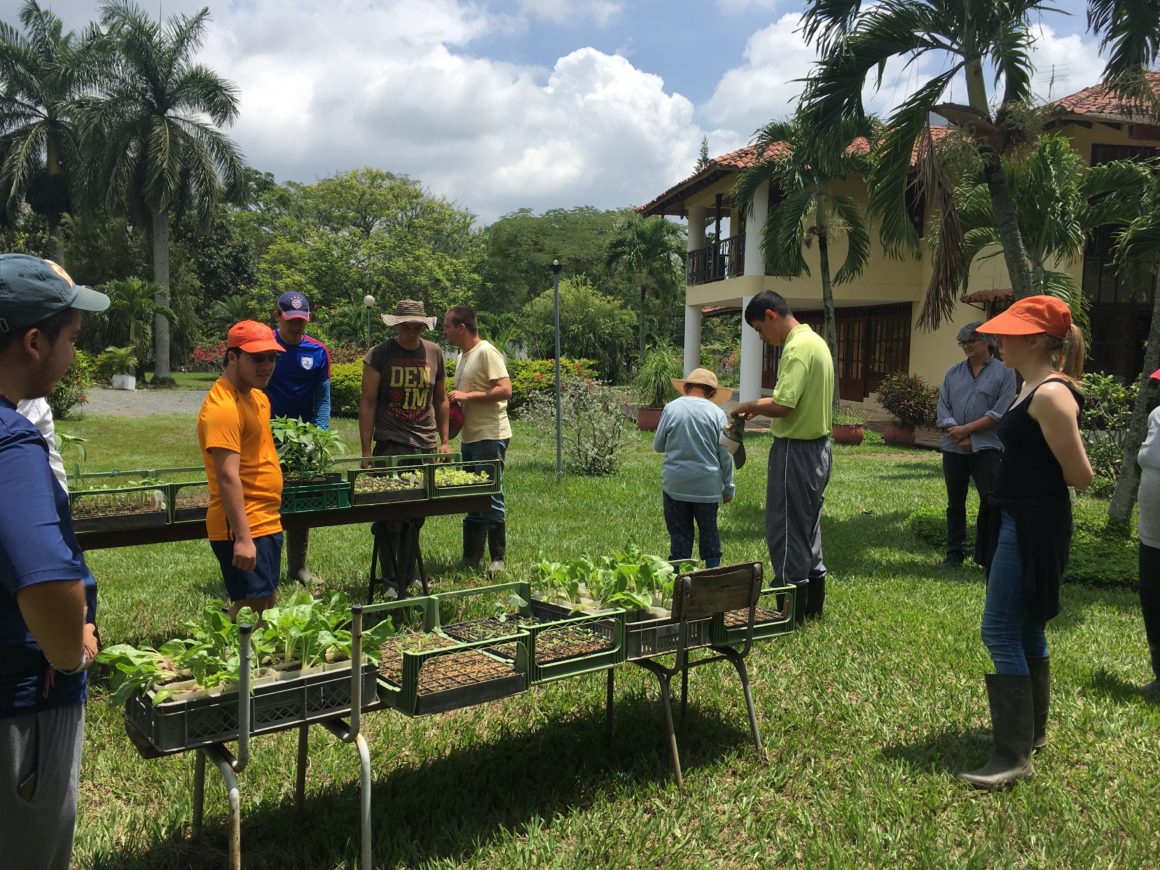Network-Building in Colombia
including questions of training, which are now carried by a newly formed core group.
In the beginning of April 2018, all initiatives and institutions in Colombia came together for an intensive collaborative meeting. The idea for this meeting had arisen out of conversations between the Colombian Council delegate, Oscar Betancourt, the Argentine delegate Doris Unger and Jan Göschel in the Leadership Team. These conversations showed that the movement in Colombia needed a new impulse for internal networking. This became the main goal for this week, which started with visits to organizations, lectures and workshops and culminated in a three-day retreat in Medellín, led by Doris Unger and Jan Göschel, which brought together representatives of the entire movement in Colombia.
Colombia has two long-established curative educational institutions: Arca Mundial offers day programs for children and adolescents with intellectual disabilities in the city of Medellín. Their work has a strongly therapeutic character, with a lot of attention on sensory-motor integration. Since Arca Mundial successfully qualified to receive funding through the public health system, individuals from all socio-economic backgrounds are able to join.
On the outskirts of the city of Cali, the day center Granja Terapacá includes adolescents and adults with disabilities. Terapacá has an agricultural program and there is a wish to strengthen this aspect in the future to become an anchor for biodynamics. There is also a vision of starting a life-sharing community. Even now, Terapacá already sees itself as a community that works towards social renewal.
A very young Camphill initiative, Agualinda, has taken root in a suburb of Bogotá. The house community includes a group of adults with disabilities, as well as Lina Reina Gärtner, its founder, her partner and other coworkers from Colombia and Europe. They manage their household together and run a popular bakery and café in town. They manage their household together and run a popular bakery and café in town.Through this, the café itself also plays a social-therapeutic role in the neighborhood.
Besides these three organizations, anthroposophic curative education also takes place within the Waldorf schools. The large Colegio Waldorf Luis Horacio Gomes in Cali has gone furthest in this: The school has established a standing group of educators, therapists and psychologists who support the inclusion of children with special needs. Another large school, the Colegio Waldorf Isolde Echavarría in Medellín, is in the process of developing an inclusive concept, thus fulfilling one of its original founding intentions. Another young school initiative in Bogotá, Inti Huasi, is also already working with these questions.
The Corporación Educativa y Social in Sierra Morena is another Waldorf-educational project with curative educational and social therapeutic aspects. In a slum area outside Bogotá, this organization supports children, adolescents and families at risk. They offer kindergartens, afterschool programs for children and teenagers, medical and therapeutic services, as well as women’s groups and adult education.
The retreat in April brought together many of those responsible for these initiatives, sometimes for the first time in many years, or for the first time altogether. or for the first time altogether. Through this, we were able to create a living forum, in which the curative education and social therapy movement in Colombia could meet itself, supported and carried by the worldwide network of which it is an integral part. New collegial connections were formed and led to new impulses for development,

